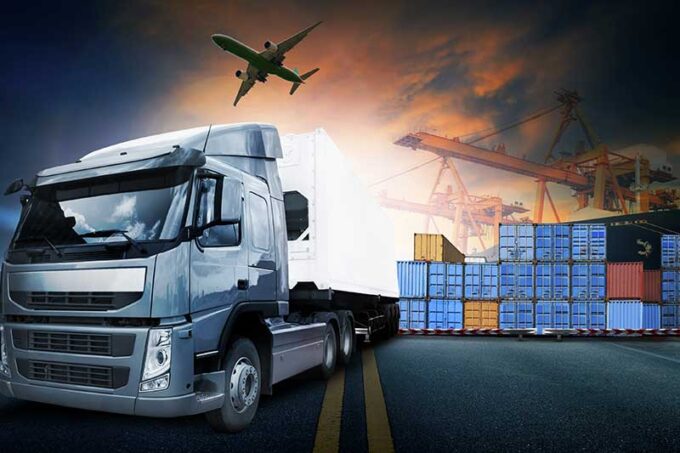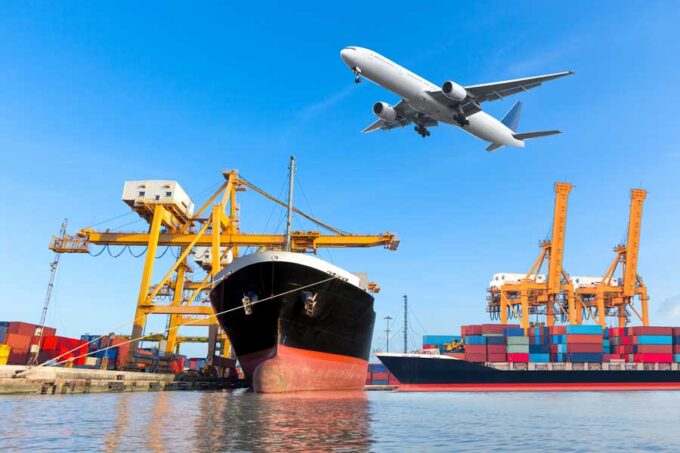Logistics and freight forwarding services are both essential components of the supply chain industry. While they are related and often work together, there are distinct differences between the two. Understanding these differences can help businesses and individuals effectively manage their transportation and shipping needs. Find out about the variances between logistics and freight forwarding services.
1. Definition and Scope

Logistics is a broader term that encompasses the management of various activities involved in the movement and storage of goods. It includes the planning, implementation, and control of the flow of products from the point of origin to the point of consumption. Logistics involves activities such as transportation, warehousing, inventory management, packaging, and information management. Freight forwarding, on the other hand, specifically focuses on the transportation and shipment of goods. It involves arranging and coordinating the movement of cargo from one location to another. Freight forwarders act as intermediaries between the shipper and the transportation carriers, ensuring that goods are transported efficiently and effectively.
2. Responsibilities
Logistics encompasses a wide range of responsibilities that go beyond transportation. Logistics professionals handle the entire supply chain process, from procurement and inventory management to order fulfillment and distribution. They are responsible for optimizing the flow of goods, minimizing costs, and ensuring timely delivery. Logistics professionals may also handle customs clearance, documentation, and compliance with regulations. Freight forwarders, on the other hand, primarily focus on transportation and logistics coordination. Their responsibilities include negotiating rates with carriers, booking cargo space, arranging pick-up and delivery, preparing shipping documentation, and tracking shipments. Freight forwarders work closely with various transportation modes, including air freight, sea freight, road freight, and rail freight, to ensure the smooth movement of goods.
3. Expertise and Services

Logistics professionals possess a broader range of expertise and offer a wider array of services. They are knowledgeable about supply chain management, inventory control, demand planning, and distribution strategies. Logistics companies may provide services such as warehousing, order fulfillment, inventory management, reverse logistics, and supply chain optimization. They have a comprehensive understanding of the entire supply chain process and focus on streamlining operations to maximize efficiency and reduce costs. Freight forwarders specialize in transportation logistics and have expertise in the intricacies of international shipping. They have a deep understanding of shipping regulations, customs requirements, and documentation processes. Freight forwarders provide services such as freight consolidation, freight forwarding, customs brokerage, cargo insurance, and tracking and tracing of shipments. They work closely with transportation carriers to secure the best rates and routes for their clients’ shipments.
4. Liability and Insurance
Logistics companies typically assume a broader range of liability and may offer insurance coverage for their clients’ goods throughout the supply chain. They take responsibility for ensuring that goods are correctly stored, handled, and transported in accordance with industry standards. Logistics companies may provide liability coverage for loss or damage to goods, as well as additional insurance options for specific risks. Freight forwarders, while they may offer cargo insurance, generally act as intermediaries and do not assume the same level of liability as logistics companies. They work on behalf of their clients to arrange transportation and coordinate logistics but typically do not take direct responsibility for the goods being transported. Freight forwarders facilitate the movement of goods by selecting appropriate carriers, handling documentation, and providing tracking services.
5. Scope of Operations

Logistics operations can be both domestic and international, depending on the size and reach of the business. Logistics professionals handle the movement of goods within a country or across multiple countries, managing complex supply chain networks. They may work with various stakeholders, including manufacturers, distributors, retailers, and end customers, to ensure the efficient flow of goods. Freight forwarding, on the other hand, primarily deals with international transportation. Freight forwarders specialize in coordinating shipments that cross international borders, managing customs clearance, and ensuring compliance with international trade regulations. They have a deep understanding of documentation requirements, import and export procedures, and international shipping practices.
6. Network and Relationships
Logistics companies typically have extensive networks and relationships with a wide range of suppliers, carriers, and service providers. They collaborate with multiple partners to optimize transportation routes, secure favourable rates, and ensure timely delivery. Logistics professionals may negotiate contracts with carriers, manage relationships with warehousing and distribution centers, and maintain connections with various stakeholders involved in the supply chain. Freight forwarders also have a network of transportation partners, including airlines, shipping lines, trucking companies, and rail operators. They leverage these relationships to provide efficient transportation solutions for their clients. Freight forwarders work closely with carriers to arrange shipping routes, handle documentation, and track the movement of goods.









